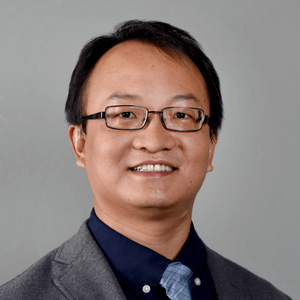"Urban Climate Modeling: From Complex Processes to Complex Systems," by Zhihua Wang

Abstract
The growth of civilization, from a historical perspective, proceeds by a recurrent rhythm of successful responses to continuous challenges, as a potentially infinite élan vital. Today, climate changes emerge as an unprecedented challenge faced by the humanity, of which the global urbanization, with concomitant burgeoning anthropogenic activities, has been the primary and the most irreversible driver. Environmental challenges faced by cities worldwide include the excessive thermal stress, concentrated greenhouse gas emissions, degraded air quality, public health risks, to name a few. Past decades have seen drastically increasing efforts devoted to the development and enhancement of realistic urban climate models that can capture complex urban land-atmosphere interactions. These models have been tested and evaluated to find more sustainable solutions to counteract the urban environmental challenges, with success at difference degrees and scales. Nevertheless, recent advances urge us to move forward from the current paradigm of process-based urban climate modeling towards more holistic system-based techniques and frameworks.
In this seminar, we will introduce the physics and transport of heat, vapor, and tracers across the urban land surface-atmosphere interface, the continuous development of numerical simulation tools, and diverse mitigation strategies. Furthermore, we will discuss the transition from process- to system-based framework in urban environmental studies. This transition, albeit at its infancy, has already generated some promising findings, including machine learning surrogates, complex urban network analysis, and casual inference, to unravel the complex urban system dynamics.
Biography
Dr. Zhihua Wang is an associate professor in the School of Sustainable Engineering and the Built Environment at Arizona State University. He obtained his B.Eng and M.Eng degrees from the School of Civil and Environmental Engineering at Nanyang Technological University, Singapore, in 2002 and 2004 respectively, and Ph.D. from Princeton University in 2011. Dr. Wang’s primary research interest focuses on the sustainable development of cities, including multiscale modeling of heat, water, and pollutant transport in the built environment, landscape and infrastructure dynamics, and complex system dynamics.
Seminar sponsored by the Environmental Fluid Dynamics (EFD) Group.